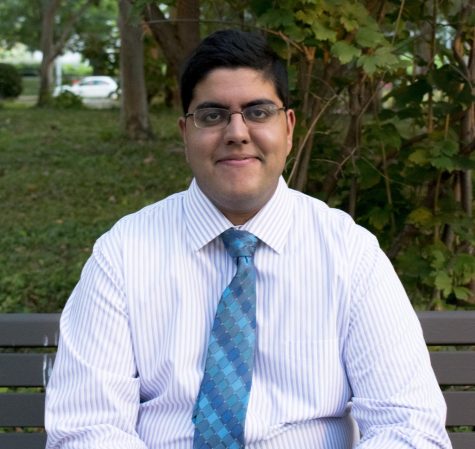Graduate student identifies new way of understanding genetic influence on common autoimmune diseases

Ph. D. candidate Olivia Corradin’s lab focuces on the impact the 98 percent of DNA that isn’t in genes has on controlling genetic expression.
January 17, 2014
While many students on campus are just beginning their research, one who is about to leave recently made an important discovery. Olivia Corradin, a Ph.D. candidate at the School of Medicine, discovered new ways of understanding the genetic influence on common autoimmune diseases.
Working under genetics professor Dr. Peter Scacheri, Corradin’s lab focuses on genomic regulation. She looks at the 98 percent of DNA that isn’t in genes but instead controls the genetic material that makes up a gene. She was looking through data on enhancers—a protein that regulatory DNA uses to control and assist gene expression—to help with another project when she came across some odd information.
So, she started comparing this data to Genome-Wide Association Studies, which looks for links between parts of a gene and a disease.
It was only after going through these studies that she realized what the discovery meant and that she had come across her next project.
“I just randomly came across a weird pattern. My boss came by, and I said ‘Hey, I found something strange. Want to see?,’” she said.
What she found was that persons tend to inherit multiple variants in regulatory DNA that make it more likely to contract a certain illness. After some backtracking, she decided to focus specifically on autoimmune diseases due to the plethora of DNA sequences available from previous studies.
The finding could lead to the development of new medication and therapy to treat these illnesses. To accomplish this, researchers do a pathway analysis, which involves looking at how regulatory DNA affects more than one gene at once and how multiple genes interact and result in a disease. This is opposed to many rare diseases, in which a change in a single base pair, and that of one itself in a gene, promotes an illness.
Unlike many students, Corradin knew she wanted to study genetics since grammar school.
“When I was little, I wanted to be an inventor. It was funny. A modern day scientist is an inventor; I just didn’t know what [a scientist] was. Eventually, I figured out genetics is more of what I meant than an inventor,” Corradin explained.
She worked in a lab with fruit flies at Marquette University, where she did her undergraduate studies as a biochemistry major. She liked it, but eventually found genomics to be more interesting, something at the opposite end of the continuum in terms of being hands on. As a Ph.D. Candidate, she has already completed all of her required coursework and is strictly doing research now.
Laughing she said, “Some weeks I work 80 hours, some weeks I work 40. It just depends.”
Sometimes, however, she can’t contain her curiosity and comes in on the weekends to check on the results of her experiments. Outside of being a researcher, Corradin is also a dancer. She takes ballet classes and teaches a dance class over the summer.
She joked, “There was a ‘dance for Ph.D.’ competition, where you dance to describe your Ph.D. work. I made my lab join in.”
But her favorite part about lab is the social life.
She says, “It’s a whole group of 23- to 28-year-olds and we work random hours. It’s really fun.”


